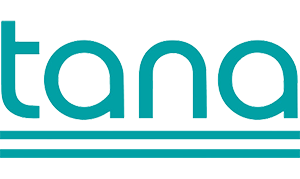Ethiopia Financial Intelligence Centre
The Ethiopian Financial Intelligence Centre was established by the Council of Ministers Regulation number 171/2009.
The powers and duties of the Centre are set out in Article 13 of Proclamation number 780/2013. It co-ordinates the competent authorities and various institutions involved in combating money laundering and the financing of terrorism. The Financial Intelligence Centre receives suspicious transaction and cash threshold reports from reporting entities. Its primary functions are:
- To receive, collect, store, and analyze reports of suspicious transactions
- To disseminate financial intelligence on ML/TF for further investigation
- To ensure compliance with AML/CFT measures, and conduct inspections and supervisions for that purpose;
- To collaborate with other government agencies and financial intelligence units (FIUs) of other countries in sharing information on technical assistance based on treaties or other legal instruments.
To carry out its tasks, the Centre is required to have practitioners with high level skill and capacity. The project team provides capacity support to the EFIC through advice, training and knowledge management.
Back to Anti Money Laundering Programme
Federal Attorney General
The Office of the Federal Attorney General is the central authority tasked with prosecuting all crimes committed in Ethiopia and to provide legal advice to the government.
It is responsible for implementing and enforcing all federal penal laws and for developing new laws. The Federal Attorney General may initiate criminal investigations, receive reports on ongoing criminal investigations, and is required to ensure that an investigation is conducted in accordance with the law. An Asset Recovery Directorate was established within the Office of the Federal Attorney General to recover proceeds of crime and other illicit assets. The project team provides capacity support to the Directorate through advice, training and knowledge management.
Back to Anti Money Laundering Programme
Ethiopia Police University College
The Ethiopian Police University College is a research and teaching centre that works to enhance the capacity of the police to understand the law and to effectively investigate crime.
The College delivers higher education to certificate, diploma, degree and masters level and is actively involved in research and community service. It is one of the main stakeholders in the implementation of the project. The project supports the Ethiopian Police University College to enhance its capacity to conduct research and train law enforcement personnel in Ethiopia. This is done through developing teaching materials, delivering training workshops, recommending curriculum innovations and supporting research.
Back to Anti Money Laundering Programme
The Ethiopian Customs Commission
The Ethiopian Customs Commission was created in terms of Proclamation number 1097/2018, which separated it structurally from the former Revenues and Customs Authority.
The Commission is headed by a Commissioner, who is accountable to the Minister of Revenues. The Commission is tasked with preventing illegal practices such as trade-based commercial fraud (under and over invoicing, wrong description and classification of goods, and the smuggling of contraband).
Trade mis-invoicing is a major source of illicit financial outflows from Ethiopia. The Global Financial Integrity estimates that between 55% and 85% of the illicit financial outflows leaving Ethiopia originate from trade mis-invoicing. This approximates to 6 to 23% of the total value of the country’s trade. To curb these IFFs, the Customs Commission is committed to work on with different law enforcement agencies and other stake holders. The project supports these initiatives through capacity building and advice.
Back to Anti Money Laundering Programme
